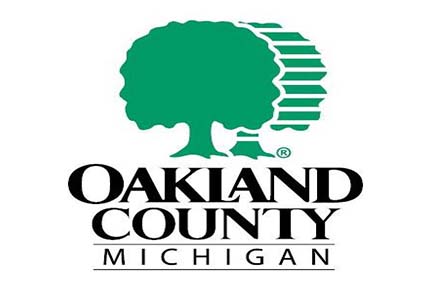Whitmer announces XL Fleet’s technology center

|

|


FOR IMMEDIATE RELEASE June 8, 2021 Contact: Laura Hall, [email protected] Governor Whitmer and State Officials Encourage Reviewing Lender Programs and Insurance Policies During National Homeownership Month LANSING, Mich. – June is National Homeownership Month and Governor Gretchen Whitmer, the Michigan Department of Insurance and Financial Services (DIFS), and the Michigan State Housing Development Authority (MSHDA) are reminding Michiganders of support available to homeowners who have been financially impacted by COVID-19.
“This National Homeownership Month, it’s important to acknowledge that COVID has exacerbated so many underlying challenges for Michiganders, especially related to housing,” said Governor Whitmer. “No one should lose their home because of an unprecedented, once-in-a-century pandemic. We encourage Michigan homeowners to take advantage of the support and relief available right now to avoid foreclosure and ensure financial protection throughout the year.”
The MiMortgage Relief Partnership, launched in 2020, is a cooperative agreement between the state of Michigan and more than 230 banks, credit unions, and mortgage servicers to provide mortgage relief to Michigan homeowners experiencing a COVID-19 related financial hardship. The deadline to request assistance from participating lenders has been extended to December 31, 2021. DIFS has also compiled a list of additional assistance programs to help impacted homeowners struggling to make their mortgage payments.
“The MiMortgage Relief Partnership is designed to help homeowners experiencing difficulty making their mortgage payments, but it is important to know that participation is not automatic – you must contact your lender right away to discuss available relief options,” said DIFS Director Anita Fox. “More than 230 of Michigan’s banks, credit unions, and mortgage companies have partnered with us to work with financially impacted borrowers to keep Michiganders in their homes.”
Contacting your mortgage servicer at the first sign of trouble is the best way to help prevent foreclosure, but MSHDA also has resources to help homeowners, said MSHDA Homeownership Director Mary Townley. “We have an expansive statewide network of nonprofit housing counselors ready to assist homeowners experiencing financial hardships.”
To find a housing counselor near you, visit Michigan.gov/
Homeowners should also take this time to review their insurance policies with their agent or insurance company to understand their coverage and any new discounts available, including for recent home improvements or going without a claim for a certain amount of time. This insurance review is a good opportunity to understand the risks you may still face and consider adding new coverage, for example to cover flood damage or water back-up. Additional information about homeowners insurance is available on the DIFS website.
Consumers who need assistance with insurance or financial services issues can contact DIFS Monday through Friday from 8 a.m. to 5 p.m. at 877-999-6442 or file a complaint at Michigan.gov/DIFScomplaints
View Governor Whitmer’s proclamation on Homeownership Month here.
The mission of the Michigan Department of Insurance and Financial Services is to ensure access to safe and secure insurance and financial services fundamental for the opportunity, security and success of Michigan residents, while fostering economic growth and sustainability in both industries. In addition, the Department provides consumer protection, outreach, and financial literacy and education services to Michigan citizens. For more information, visit Michigan.gov/DIFS or follow the Department on Facebook, Twitter, or LinkedIn. |

Pontiac, Michigan – Oakland County Health Division will host 5 COVID-19 vaccine clinics from Tuesday, June 8 – Monday, June 14 in the following communities: Addison Township, Hazel Park, Novi, Oxford, and Pontiac. These clinics accept both appointments and walk-ups.
Continuing its focus on community-based clinics, Health Division will also host vaccine clinics in Brandon, Groveland, Rose, and Springfield Townships the week of June 14 and the South Lyon/Lyon Township area the week of June 21. Monitor OaklandCountyVaccine.com for these upcoming clinic locations and times. Those who do not have access to a computer or the Internet may call the Nurse on Call at 800-848-5533 for more information.
The following is an update on progress vaccinating Oakland County residents, according to the State of Michigan COVID-19 Vaccine Dashboard as of June 7, 2021:
Total eligible residents 16 and older: 1,029,737
Total eligible residents 12 and older: 1,091,389
Total eligible senior residents 65 and older: 217,676
Total doses distributed within Oakland County: 1,300,355

Monday, June 7, 2021
Media Contact: Camara Lewis, 517-930-4928
As the economy continues to open back up and employers strive to keep their employees, customers and communities safe from COVID-19, the State of Michigan has launched another round of funding for the Michigan COVID-19 Safety Grant Program. These grants will provide small businesses, including eligible childcare centers, matching funds of up to $10,000 to decrease the risk of COVID-19 spread through safety and health-related equipment purchased and training.
The grant application window will be open from Monday, June 7. through Friday, June 18, with awards given shortly thereafter. Grants received after June 18, will be held pending a potential third phase, if funds remain available.
“Employers need to remain vigilant to ensure workers, customers and communities are safe from COVID-19,” said Sean Egan, Michigan COVID-19 workplace safety director. “We’ve seen success with an earlier round of funding and are confident the additional financial support will help keep Michiganders safe.”
Small employers interested in applying must have fewer than 250 employees, provide a copy of their COVID-19 safety plan, and a description of how funds will help improve workplace safety for employees, customers and their communities. Additional information on grant funding can be found in the program brochure.
“These grants support Michigan’s small businesses in efforts to establish safer and healthier work environments,” Bart Pickelman, MIOSHA director said.
Examples of how grant funding may be utilized:
These grants are intended to supplement costs of safety mitigation measures put in place by businesses during the height of the pandemic. This is a reimbursement program, and to be eligible for grant funding, goods must have been purchased on or after Jan. 1, 2021.
To apply, businesses need to complete the Michigan COVID-19 Safety Grant application.
Grants are provided through SB 690 appropriation of federal CARES Act funding and will be awarded until grant funding is expended. Grant awards are limited to one per company. In this round of the safety grant application, a designated $500,000 is available for non-in-home, licensed childcare centers. The remaining portion will be distributed on a first-come, first-serve basis.
Learn more about MIOSHA’s efforts to protect Michigan’s workforce during the pandemic and for information on the latest workplace safety guidance at Michigan.gov/COVIDWorkplaceSafety.

Friday, June 4, 2021
Media Contact: Camara Lewis, 517-930-4928
As the economy continues to grow, the Michigan Dept. of Labor and Economic Opportunity (LEO) launched a new ‘Back to Work’ effort to highlight programs and services that help businesses and their current workforce needs.
The new online resource – Michigan.gov/BackToWork – centralizes programs and services aimed at helping employers fill job openings; provide safe, healthy work environments for workers; and address other business-related needs.
“As we put Michigan back to work, our administration is turning our attention to uplifting Michiganders and supporting small businesses to continue our state’s strong economic outlook,” said Governor Gretchen Whitmer. “By providing tangible resources for businesses who need our immediate assistance after a challenging year, we will ensure that Michigan families and small businesses emerge from the pandemic stronger than ever before.”
The ‘Back to Work’ effort comes at a time when the state is faced with five predominant workforce challenges:
To address the immediate needs of job providers and the workforce, employers can take advantage of free resources such as the online portal for connecting them with job seekers; Pure Michigan Talent Connect and LEO-organized virtual job fairs that can be regional, industry or occupational-focused, matching job seekers to employers in a remote space.
LEO continues to offer assistance through the MIOSHA Ambassador program by providing free education to help employers create safe workplaces without the risk of any potential penalty or citation. Over 4,000 businesses have participated since September 2020.
In addition, unemployment insurance (UI) benefits provided a wealth of economic relief to Michigan. Throughout the pandemic, most Michigan claimants went back to work well before they exhausted their benefits – an average of 14 weeks versus the full 20 weeks. Not only are UI benefits not a major workforce barrier, but the program resulted in $64.7B in statewide earnings, which helped contribute to the economic recovery.
UI benefit programs like Work Share allow employers to bring back or keep employees working with reduced hours. During the pandemic, Michigan had the No.1 Work Share program in the country, preserving nearly 100,000 jobs and saving the State Trust Fund more than $90 million. The agency is currently working with state lawmakers to expand program flexibility to allow more employers to participate and more workers to be covered.
“Throughout this pandemic we have prioritized businesses talent needs, and we continue to be committed to ensuring every Michigander has an equal and accessible opportunity to postsecondary education that leads to a good-paying, in-demand career,” said LEO Acting Director Susan Corbin. “By providing employers with services to find and develop skilled talent, we create lasting change for every Michigander seeking a better life.”
The pandemic has created a growing child care crisis that threatens the state’s economic recovery. Many child care centers are still closed, or reopening at a reduced capacity because of staff shortages and to allow for greater social distancing. Heading into the summer, many parents are concerned about child care availability. The state plans to use federal dollars to expand its pilot MI Childcare Tri-Share Program that provides more affordable child care through an innovative, bipartisan cost-sharing program that divides cost equally between employees, employer and state.
To further engage employers, LEO is hosting a virtual webinar geared toward highlighting services businesses can tap immediately and addressing their questions related to employment and training needs. The webinar is scheduled for Wednesday, June 9 at 10 – 10:45 a.m. To join, register at: https://us02web.zoom.us/webinar/register/WN_TbEb9QxBQ8irnyYU1q5QQQ.
In addition to tools to address your immediate workforce needs, employers looking to fill jobs and retain talent are encouraged to explore the state’s programs and services at Michigan.gov/BackToWork.


Kurt Weiss, [email protected]
Gov. Whitmer Announces Preschool Fu
LANSING, Mich. — Governor Gretchen Whitmer today announced her plan to fund preschool education to ensure that all eligible children in Michigan have access to high-quality, affordable early education opportunities that prepare them for success. The Great Start Readiness Program (GSRP), the state-funded preschool program for four-year-old children, has not been able to meet demand and currently only 66 percent of eligible children statewide are served by GSRP or federal Head Start programs. The plan announced today would increase funding for GSRP to ensure eligible 4-year-olds are served.
“We have a unique opportunity right now to make the type of investments in early education and preschool that will pay massive dividends by improving health, educational, and social outcomes for our children decades down the line,” said Governor Gretchen Whitmer. “Parents across our state are aware of the importance of early education and now we have to seize this chance to eliminate waitlists for eligible children. The investments announced today provide access to all eligible children and will help narrow the achievement gap between high-income and low-income students. As we put Michigan back to work, parents can go about their work day knowing that their children are learning in a safe and productive environment.”
GSRP is a proven preschool program that provides full- or part-day services to children from families at or below 250% of the poverty line, which is $66,250 for a family of four. In tandem with the Head Start program, GSRP currently provides preschool to 43,100 kids across Michigan. An estimated 65,400 students are eligible for the program.
“There is bipartisan support to expand preschool access for kids across Michigan and I am pleased we can make this investment,” said State Budget Director David Massaron. “I think it’s important to note that this is a plan with identified resources to ensure we can sustain full access into the future. The fact that this is not just a one-time investment for one year but rather a plan that incorporates continued investment in future years is extremely exciting.”
Investments in GSRP provide both immediate and long-term results, such as improved literacy performance by 3rd grade, narrowed achievement gaps between low and high-income students, and improved high school graduation rates.
“Early childhood education is critical for the development and future success of all children. By investing in universal Pre-K education we can ensure that every Detroit child has the opportunity to get the head start they need,” said Mayor Mike Duggan. “I appreciate Gov. Whitmer’s leadership in prioritizing the education of our youngest children across Detroit and Michigan.”
Governor Whitmer’s plan proposes an additional $255 million in federal dollars and $150 million in state dollars, for a total of $405 million, for GSRP over the next three years.
“Research shows that the earlier we start investing in kids, the better the outcomes will be in education and in life,” said Jeff Donofrio, President and CEO of Business Leaders for Michigan. “Investments in programs like GSRP not only will improve the lives of thousands of Michigan kids, it also will help many parents return to the workforce to build family-sustaining careers.”
The plan also calls for an additional $50 million in federal funds to support a successful expansion , such as:
“There is no better investment than our children,” said Senate Minority Leader Jim Ananich (D-Flint). “As a former teacher, I’ve seen firsthand the long-term benefits of a quality preschool education, and that’s why I am so glad that Governor Whitmer is making the Great Start Readiness Program available to more of Michigan’s kids. Her plan cuts down the financial and logistical barriers that currently stand between families and preschool, ensuring that more children start their education on the right foot.”
“Every parent wants the best for their child, starting with an opportunity to attend a high-quality preschool,” said House Democratic Leader Donna Lasinski (D- Scio Township). “For many families, this is out of reach. Children who start school behind, rarely end up ahead. I have been passionate about the need for accessible, high-quality preschool education for all since my work over a decade ago at the Great Start Collaborative. I am proud to stand with Governor Whitmer to support this historic proposed investment in the future of our children and state.”
“The Child Development Laboratories is grateful Governor Whitmer understands the critical importance of high-quality early care and education programs for children and families in Michigan,” said Laurie Linscott, Director of Michigan State University Child Development Laboratories. “Too many families don’t have the resources to access early childhood education, and Governor Whitmer’s work to make it affordable and accessible for so many students will have innumerable positive effects on the future of our state. It is an exciting time in the field as the value of this work is becoming understood.”
“Helping people age with grace and dignity and living their best lives is some of the most important work we can do, but it all starts here with early childhood education,” said Paula D. Cunningham, State Director of AARP Michigan. “This is step one in preparing a person to achieve success, to reaching their fullest potential. Everyone deserves the same opportunities for a Great Start, to begin that lifelong journey. Access to a quality education and quality of life should start at the cradle and end at the grave.”
|